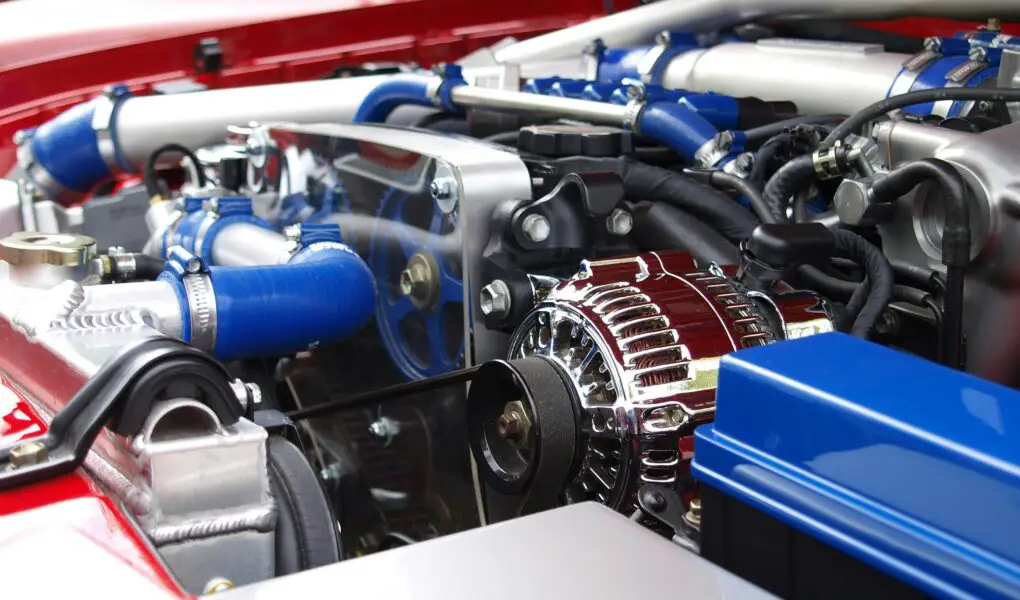Navigating the landscape of government funding can be a complex endeavor, particularly when you’re seeking specific support like a government grant for an automobile small business.
This guide aims to demystify the process and provide you with a clear pathway to securing the financial aid needed to fuel your automotive venture. Whether you’re starting up a new business or looking to expand an existing one, understanding how to access and leverage these grants can be pivotal in driving your success. To learn more on how to get government grants for auto repair.
Expanding Opportunities for Women Entrepreneurs
The automotive industry is broad and evolving, offering numerous niches such as classic car restoration, automotive software development, and electric vehicle conversion kits. Women entrepreneurs are particularly encouraged to tap into government grants tailored for women-owned auto businesses. The landscape is ripe with opportunities for innovation and growth.
Understanding Eligibility Requirements
Different grants target varying facets of the auto industry, from production to maintenance and beyond. Here’s a breakdown of common eligibility criteria:
- Industry Focus: Ensure that your business aligns with the grant’s targeted industry sectors.
- Geographic Location: Some grants favor businesses in rural areas or specific economic zones. Verify your location’s eligibility.
- Funding Purpose: Grants typically fund specific purposes like R&D, infrastructure improvements, or job creation. Align your business’s operations with these goals.
- Business Size: Most grants are aimed at small businesses defined by revenue or employee count.
- Legal Status: Your business must be legally registered and compliant with relevant regulations.
- Project Scope: Your proposed project should address priorities or challenges identified by the grantor.
- Compliance: You’ll need to adhere to all reporting, monitoring, and accountability guidelines specified by the grant.
Essential Documents for Grant Applications
When applying for a government grant for your automobile small business, having the right documents in order is crucial. These documents not only support your application but also validate the credibility and preparedness of your business. Let’s dive deeper into the essential paperwork you should have ready:
1. Business Plan
This document is your business’s blueprint and arguably the most critical part of your grant application. It should clearly articulate your business idea, target market, competitive analysis, and include detailed financial projections. Make sure to highlight how your business aligns with the grant’s goals—whether that’s innovation, job creation, or sustainability. A well-thought-out business plan shows grant evaluators that you have a clear vision and strategy for your business.
2. Personal Identification
This might seem basic, but having valid personal identification for all key personnel, especially the owners and executives, is essential. This typically includes government-issued IDs such as passports or driver’s licenses. It’s a way for the grantors to verify the identities of the people behind the business.
3. Detailed Financial Reports
You’ll need to present comprehensive financial statements such as balance sheets, income statements, and cash flow analyses. These documents provide a snapshot of the financial health of your business and demonstrate its sustainability and growth potential. They are vital for grantors who want to assess the risk and stability of investing in your venture.
4. Permits and Licenses
To operate legally, your business must have all the necessary permits and licenses, which vary depending on your specific automotive activity. This could range from a dealer’s license to a repair shop permit. Providing original or certified copies of these documents reassures grantors that your business complies with local, state, and federal laws.
5. Tax Returns
Showing your business’s tax returns for the past few years is crucial. This not only confirms your compliance with tax obligations but also reflects the profitability and financial trends of your business. It’s a testament to your business’s financial responsibility and organizational capability.
6. Business Formation Documents
Documents like articles of incorporation, partnership agreements, or any other legal papers that verify the establishment and structure of your business are necessary. These documents are proof of your business’s legitimacy and readiness to operate under the confines of legal and corporate structures.
7. Supplemental Files
Depending on the grant, you might also need to include additional supporting documents. These could be letters of recommendation, which provide third-party verification of your business’s reputation and impact. Community impact statements can also be powerful, showing how your business benefits or plans to benefit the local community. Additionally, resumes of key personnel can bolster your application by showcasing the expertise and capability of your team to carry out the proposed project.
Having these documents well-prepared and organized not only strengthens your application but also reflects your professionalism and serious intent. It’s about making a compelling case to the grantors that your business is worth investing in, and that you have the structure and strategy to turn their funding into successful outcomes. So, take the time to gather and polish these essential documents. They could very well be the key to unlocking those crucial funds for your business.
Spotlight on Specific Grants
Let’s zoom in on some specific grants that can propel your automobile small business forward. Each grant has unique features and targets different aspects of the automotive industry, from innovative technology to infrastructure development.
Here’s a closer look at a few programs that could be pivotal in driving your business to the next level:
1. Strengthening Mobility and Revolutionizing Transportation (SMART) Grants Program
The SMART Grants Program is a fantastic opportunity for businesses looking to integrate cutting-edge technology into their operations. This program focuses on enhancing mobility through innovations like connected vehicles and automated systems, which can significantly improve efficiency and safety in transportation. If your business is working on smart community technologies or similar projects, this grant can provide the necessary funds to scale your innovations. It’s an ideal fit for ventures aiming to lead the charge in transforming transportation through technology. The program encourages applications from a wide range of entities, including states, municipalities, tribal governments, and even consortiums of these organizations. If you’re pushing the envelope in smart transportation, the SMART Grants could be your gateway to significant advancements.
2. Department of Energy (DOE) Initiatives
For those diving into the electric vehicle (EV) sector, the DOE offers a series of grants that could be game-changers. These initiatives are designed to foster innovation and development in areas like battery technology and hydrogen fuel cell technologies. Whether you’re focused on creating more efficient battery solutions or developing infrastructure for hydrogen fuel, DOE grants provide the support to turn groundbreaking ideas into market-ready products. The DOE is particularly interested in projects that can contribute to the sustainability of transportation, making this a perfect match for businesses aiming to make a positive environmental impact. Remember, while these grants are highly competitive, they offer substantial support that could propel your venture into new realms of innovation.
3. Rural Opportunities to Use Transportation for Economic Success (ROUTES)
If your business is based in a rural area, the ROUTES program could be particularly relevant. This initiative aims to enhance the transportation infrastructure in rural America, which often lacks the investment seen in urban centers. By improving transportation, the ROUTES program helps rural businesses like yours become more accessible and efficient. This can include support for building EV charging stations or other facilities that promote the adoption of electric vehicles in rural regions. The grant not only supports the physical infrastructure but also the economic growth and mobility of rural communities. If you’re located in a rural area and looking to enhance local transportation options, ROUTES could provide the crucial support you need.
4. Federal Transit Administration Grants
For businesses that intersect with public transportation, grants from the Federal Transit Administration (FTA) can provide substantial support. These grants often focus on enhancing bus networks, which can indirectly benefit your business by improving overall transportation infrastructure. Whether it’s upgrading facilities, acquiring new buses, or rehabilitating existing equipment, these grants help make public transportation more reliable and widespread. For auto businesses, better public transportation can lead to increased traffic and business opportunities, especially if you’re involved in vehicle maintenance, sales, or ancillary services.
Exploring these specific grants provides a roadmap to potential funding that aligns with various aspects of the automotive industry. Whether your focus is on innovative technology, infrastructure, or enhancing transportation in rural areas, there’s likely a grant designed to support your endeavors. Dive into the details, prepare a compelling application, and you might just secure the funding that drives your business into the fast lane!
Conclusion
Securing a government grant for an automobile small business is no small feat. It requires navigating a labyrinth of regulations and requirements. However, with the right approach and thorough preparation, you can uncover the funding necessary to propel your business forward. Whether it’s through small business loans or substantial SMART grants, the opportunities for innovation and growth are plentiful. With determination and expert guidance, the complex question of how to secure a government grant becomes much clearer, paving the way for a successful venture in the automotive industry.




